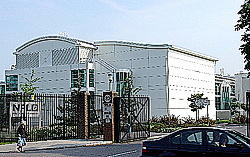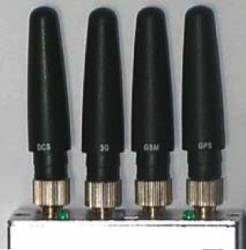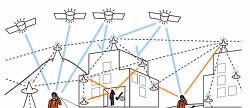 National Physical Laboratory entrance
National Physical Laboratory entranceThis free one-day event at the British National Physical Laboratory in Teddington (London) on Wednesday, February 22 will present results of current jamming detection, and consider emerging threats such as meaconing and spoofing.The seminar runs from 9:30 a.m. to 5:30 p.m.
Interested participants must pre-register online.
Todd Humphreys, director of the Radionavigation Laboratory at the University of Texas-Austin will deliver the keynote, "PVT security: privacy and trustworthiness."
This free one-day event at the British National Physical Laboratory in Teddington (London) on Wednesday, February 22 will present results of current jamming detection, and consider emerging threats such as meaconing and spoofing.The seminar runs from 9:30 a.m. to 5:30 p.m.
Interested participants must pre-register online.
Todd Humphreys, director of the Radionavigation Laboratory at the University of Texas-Austin will deliver the keynote, "PVT security: privacy and trustworthiness."
Other speakers include David Last, Greater London Authority (GLA) consultant, on "GNSS vulnerability and the case for eLoran" and Charles Curry, Chronos Technology, on "Vehicle-borne GPS jamming incidents detected in the SENTINEL project". (The SENTINEL project continuously monitors GPS signals and warns users of interference from nature or hostile sources.)
For a complete list of topics and speakers, go to the event website below.
The seminar is organized by the Position, Navigation and Timing Network, part of the UK’s Knowledge Transfer Networks (KTN). These are designed to simulate innovation in the economy through higher levels of research and development and knowledge transfer.
The Royal Institute of Navigation and GRACE (GNSS Research Applications Center of Excellence) are cosponsors.





